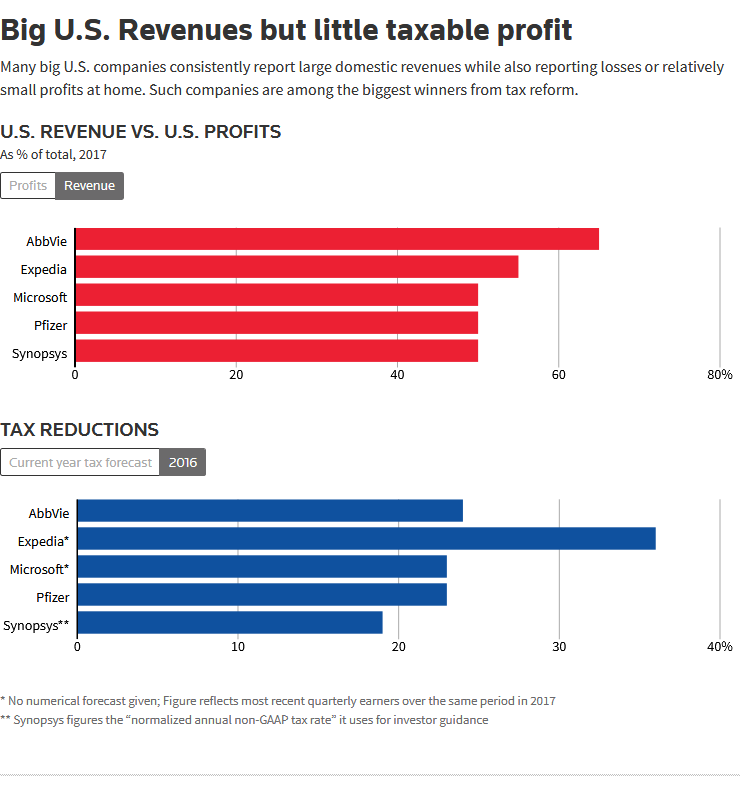When the U.S. Congress passed sweeping tax overhaul legislation in December 2017, one of its primary objectives was to incentivize companies that have parked trillions of dollars in offshore accounts to bring it back home.
Which probably makes sense on the face of it considering that U.S. companies were estimated to be holding about $2.6 trillion of corporate profits in overseas accounts due to the then-huge tax bill they would have to foot to repatriate the cash stateside.
But in cruel twist of fate, the new tax law could end up having a pretty nasty and unintended consequence: Encouraging companies to shift their profits to overseas tax havens and pay even less to Uncle Sam.
The new GOP tax law slashed repatriation tax rates from a hefty 35 percent to a more palatable 21 percent, giving these companies a nice tax break.
The same bill, however, decided to stretch its magnanimity even further by allowing overseas income to be taxed at only half the U.S. rate--to as low as 10 percent. That gives U.S. companies the incentive to report at least part of their income in lower tax jurisdictions in a bid to lower their tax bills even further.
Whereas the law put in place several anti-tax avoidance measures¸ the guardrails in the new territorial system may not be strong enough to prevent profit shifting--if current happenings are any indication.
According to Reuters, pharmaceutical maker, AbbVie Inc. indicates where this could all end up going, noting that the company told investors earlier this year that its tax rate would drop to an impressive nine percent from 22 percent previously because of territorial tax changes.
AbbVie is a grand master when it comes to using tax havens. The company has historically reported the majority, if not all of its income in lower tax jurisdictions including Bermuda which has a zero-tax rate on corporate profits, according to Reuters.
In 2017, AbbVie reported zero profits in the U.S. despite realizing $28.2 billion in U.S. sales. Instead, the company reported income tax of $10.4 billion on international revenue of just $9.97 billion. In fact, AbbVie has never reported any profits in the U.S. despite being a suburban Chicago company with most of its research facilities based here.
Quarterly Capitalism
And going by the culture of quarterly capitalism by public U.S. companies, there is a strong likelihood that AbbVie might soon find itself in good company. Related: The Trials And Tribulations Of A $4 Billion Blockchain
Quarterly capitalism, aka short-termism, is driven by the need by companies to pad their bottom lines each quarter so as to impress Wall Street and shareholders. Give your average public an easy opportunity to add a dollar or two to its EPS and it will likely jump at it, R&D and innovation be damned.
In fact, AbbVie is hardly the only company with big U.S. operations but hardly reports any profits on home soil. Microsoft, Expedia, Pfizer, Boston Scientific and Synopsis are all pros at the game.

(Click to enlarge)
Source: Reuters
Microsoft and Synopsis have reported about half their sales in the U.S. but less than a quarter of profits in the country for eight years running--a clear tax reduction strategy, according to Reuters.
No prizes for guessing that these companies are not about to divulge the exact mechanisms they use to report such low tax rates. For pharmaceuticals like AbbVie though, it mostly involves parking tons of important patents in tax havens then setting up subsidiaries to do the manufacturing there.
By Alex Kimani for Safehaven.com
More Top Reads From Safehaven.com:
















